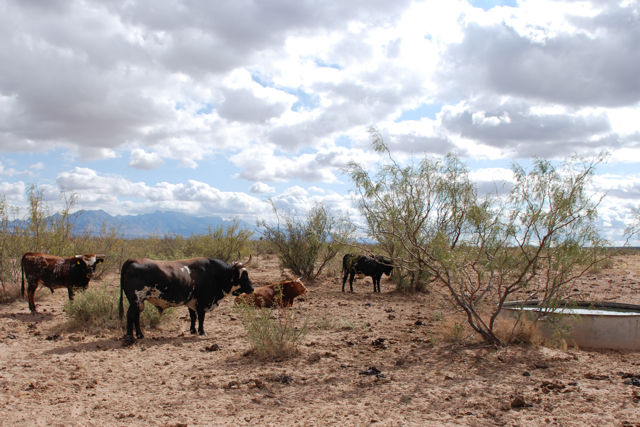For more details about an impact, contact information for NMSU ACES faculty and staff is available at the online directory.
For general questions regarding impacts in this database, please contact Claire Montoya at ccortner@nmsu.edu.

Economics of Raramuri Criollo and British crossbred cattle production in the Chihuahuan desert: Effects of foraging distribution and finishing strategy
An NMSU researcher led an effort to understand how beef genetics impact the profitability of beef production in arid environments. Significant challenges for raising beef cattle exist in the arid and semi-arid regions of the United States. Limited forage availability and small profit margins are among the greatest concerns in Western U.S. ranching operations. One potential option for ranchers in these regions is using alternative cattle genetics, such as Raramuri Criollo (RC), a Mexican heritage biotype of cattle brought to the Americas by Spanish Conquistadors. Previous research has shown that compared to commercial beef breeds, RC cattle exhibit behavior traits that result in foraging patterns that could reduce the environmental footprint of rangeland animal agriculture. The research team investigated the profitability of raising this biotype in an alternative production system (grass finishing) in the Chihuahuan Desert by producing enterprise budgets for a herd of RC cattle on the Jornada Experimental Range. Results show that RC cattle have lower operating and overhead costs when compared to Angus x Hereford (AxH) crossbred cattle. This reduction in costs allowed the RC cattle operation to have greater net returns to land and risk when compared to an AxH cattle operation in the same location. Raising RC cattle could be a means of strengthening the economic sustainability of desert beef cattle ranching in the United States.